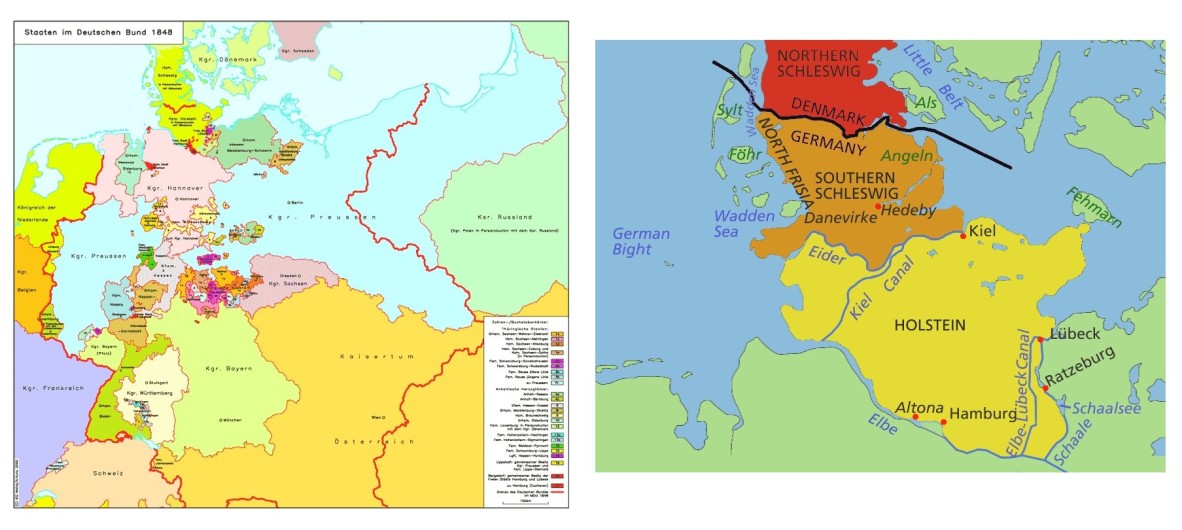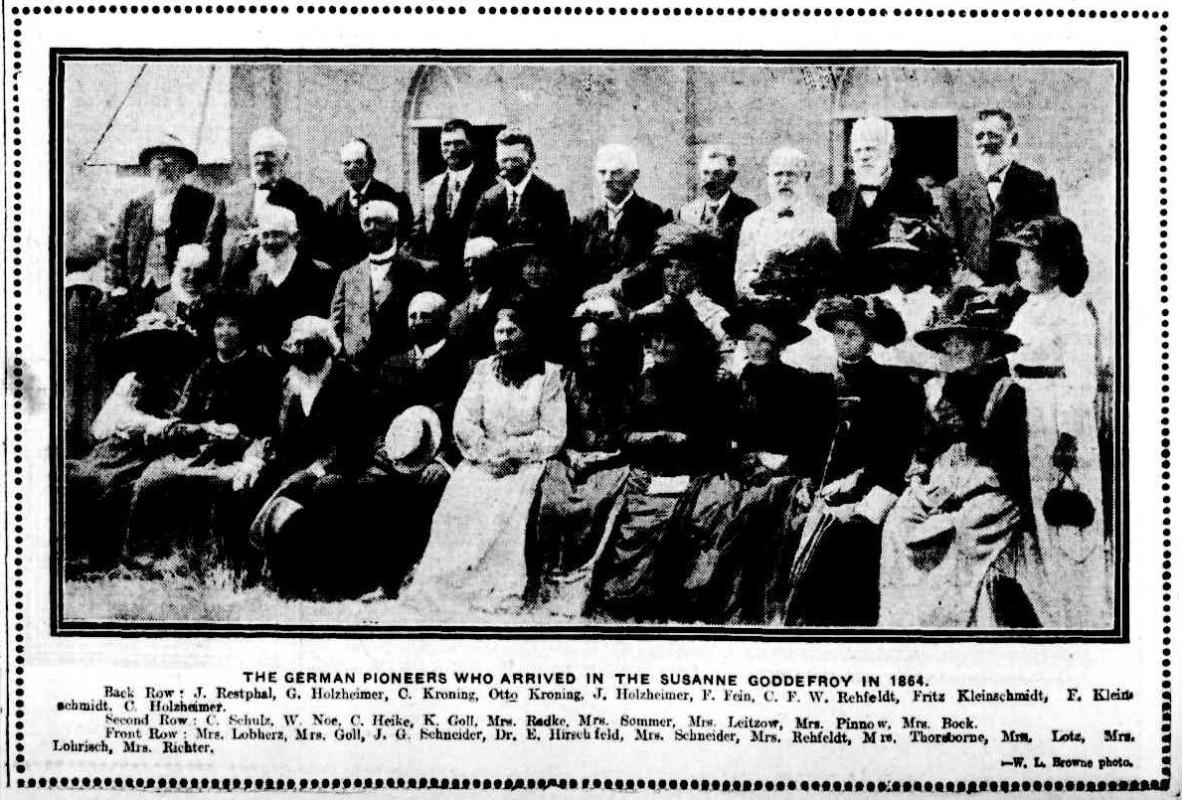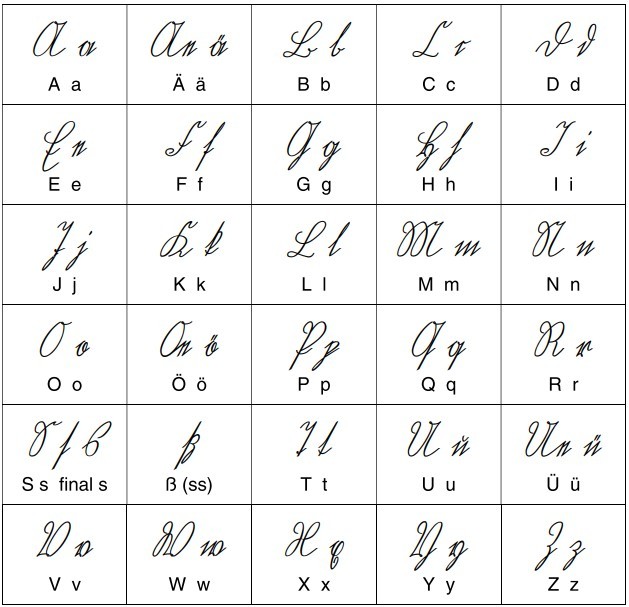Tips for tracing your elusive German emigrant
By Eileen Dwane, Librarian & Kirsten Perris, Library Technician, Libary and Client Services | 5 August 2022
Even for novices to family history research it soon becomes clear that the spelling – or more precisely, the misspelling - of names can have a major impact on the success of your research. This is particularly true when researching immigrants from non-English-speaking parts of the world.
You do not need to speak German to retrieve information on German migrants from Australian records. However, an understanding of some of the common problems you may face can assist your research.
Firstly, who were the Germans?
Before 1800 the area we call Germany was impacted by centuries of conflict between numerous small kingdoms, principalities, duchies, and independent city states. This weakened them and made them vulnerable to attack from neighbouring countries.
Later centuries saw the area further impacted by such major events as:
- The Napoleonic Wars;
- The First and Second World Wars;
- The Reunification of Germany
These conflicts, and the treaties that ended them, caused the constant redrawing of borders. As a result, the map of Europe, and that of Germany, has been one of constantly changing boundaries.

Left map: States in the German Confederation 1848
Right map: Schleswig-Holstein historic map
What does this mean for us as family history researchers?
The result of these constantly changing borders is that there is no central recording agency, and no consistently used language in the records. Researchers will find different dates for the start of civil registration and other records, different details in the records and frequent place-name changes.
When an area was taken over by a non-German speaking nation there could be a change in the language used in official records and corresponding changes in local place-names.
Why are German names recorded inconsistently in Australian records?
There are a number of reasons why German names are recorded inconsistently in Australian records. Germans were often keen to integrate into their new homeland and deliberately anglicised their given and/or family names; for example, Gaertner might have become Gardener, Muller/Miller, and Johann/John. Remember too that in Australia in later decades, during World War One for instance, it was not always desirable to be of German descent; many German families - sometimes after years in Australia - deliberately anglicised their names during this period.
It is also possible that personal names were incorrectly recorded because the clerk recording them did not understand German. They recorded what they heard, not necessarily how it's spelt. Transcribers of records may have had trouble deciphering names written in an unfamiliar script and transcribed them inaccurately.
Be aware that places of origin are frequently almost illegible in original documents. The place names may no longer exist so you may not be able to find them in modern day maps. Also consider that details such as ship names and dates of arrival passed down through the family by word of mouth may be incorrectly remembered. For example, the vessel “La Rochelle” may be remembered as “Laura Schell” which can take some unravelling.

THE GERMAN PIONEERS WHO ARRIVED IN THE SUSANNE GODDEFROY IN 1864.
Brisbane Courier, 31 January 1914, p12 (caption and names), http://nla.gov.au/nla.news-article19948552
Here are some of the German language characteristics that can help you in your research
Pronunciation is the source of frequent mis-spelling of German names in Australian records so an understanding of some German pronunciation characteristics can help.
- Umlauts on vowels (ä, ö, and ű) alter spellings and pronunciation. The usual convention in writing is to replace the umlaut by adding an ‘e’ after the vowel. e.g. Mőller may be recorded as Moeller.
- German letter ‘e’ sounds the same in German as the English ‘a’. Names like ‘Enders’ may be recorded as ‘Anders’. At the end of words, ‘e’ is always sounded, e.g. ‘Katerina’ and ‘Katherine’ spelled differently but in German sound the same.
- German ‘s’ sounds like the English ‘z’, e.g. German ‘Elisabeth’ is pronounced as ‘Elizabeth’.
- Pronunciation of German ’ch’ depends on its position in a word, e.g. Eichmann vs Schuman; often incorrectly recorded as ’k’.
Understanding German script
Old German ’Kurrent’ script was taught in schools up to 1941 and is what most of our German ancestors would have been taught. Many modern-day Germans are unable to read the Old German script. The chart below from FamilySearch is one of many available in print and on the Internet to assist in deciphering what is written. Note particularly similarities between letters such as lower case ‘e’, ‘n’ and ‘u’, and lower case ‘f’ and ‘s’.
Nowadays there are websites offering help with deciphering old German handwriting but it is still very much a case of solving a complex puzzle. It is small wonder that non-German speaking indexers often transcribe German names inaccurately.
Records written in Kurrent script can cause major confusion particularly in relation to place-names.

Chart for Old German ’Kurrent’ script
Points to remember
So, when beginning your research of your German emigrant ancestor it is important to be aware of the following:
- German conventions of script, language, and adaptation that can affect spelling of names and places; and
- names of people and places can have multiple spellings.
Because German names can appear in so many variations it is wise – wherever possible - to use databases and indexes that provide flexible search options.
Use the following when appropriate and possible:
- wildcards* to overcome spelling or transcription errors;
- a search by given name only;
- other sources of immigration details such as naturalisations, obituaries and significant anniversaries noted in newspapers.
The more versions of the name you can identify, the better able you will be to get information from resources with less flexible search options.
Related resources:
Main sources for 19th century immigration
- Queensland State Archives Assisted Immigration, 1842-1912 index [Index categories < Immigration < Assisted Immigration 1848-1912]. Online access to indexes and digitised records.
- Queensland Customs House shipping 1852-1899 indexes [CD-ROM] – limited details. Original lists held at National Archives of Australia (Series J715, rolls 1-42 digitised).
- Newspaper arrivals of saloon passengers - Trove digitised newspapers. Minimal details. Often family name only, no given names.
- Emigrants from Hamburg to Australia 1850-1879 by Rosemary and Eric Kopittke. Transcribed from the official Hamburg emigration records, lists German and some Scandinavian immigrants for the years 1850-1879.
- Unassisted arrivals into other states – see Family History research guides listed below.
- Kartenmeister - German place names database.
Research guides
August is Family History Month
Get involved in our Family History Month activities.
- Visit State Library during the month of August to see our collection display on level 3, and get expert help with your family history research.
- Share your story with us. State Library would like to hear your stories of discovery and share them as an inspiration for others during Family History Month 2022.
- Have fun exploring our family history month page, with access to resources, research guides and blogs.
More information
Ask Us service - /plan-my-visit/services/ask-us
Family History - /research-collections/family-history
Library membership - /get-involved/become-member
Comments
Your email address will not be published.
We welcome relevant, respectful comments.